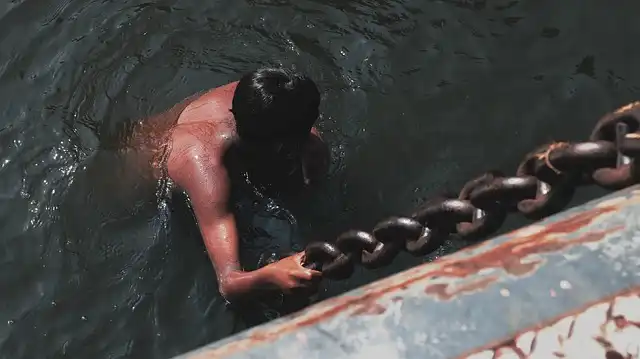Little Boat: Violence, Indifference, and the Drowning in the Channel

Vincent Delecroix's 'Little Boat' explores the banality of evil and institutional indifference surrounding a tragic drowning in the English Channel, highlighting the culpability of ordinary individuals.
Fiona Murphy does not work for, consult, very own shares in or get financing from any firm or organization that would benefit from this post, and has revealed no relevant affiliations beyond their scholastic consultation.
It’s that it occasionally teases with making shame right into its own kind of lyricism if Small Watercraft has a flaw. This as well might be intentional. It is simpler, possibly, to feel sorry than to feel implicated. And far easier to narrate moral complication than to avoid its reasons.
Violence as Policy: Forced Displacement
I thought too concerning my very own work as an anthropologist researching forced displacement throughout Ireland, Turkey and Australia. I’ve rested with people whose lives are shaped not by violence in its motion picture kind, yet by violence as plan: the hotel room without a kitchen area, the letter that never gets here, the bed that’s eliminated without any caution.
Banality of Evil: Boundary Workers
Delecroix’s luster exists in revealing just how violence at the boundary is lugged out not by villains, however by workers. By females with home mortgages, guys on night changes, individuals that’ve discovered to arrange telephone calls for help by seriousness, trustworthiness, accent.
Little Boat, which was shortlisted for the 2025 International Booker Reward, centres on an actual scary: the drowning of 27 people in the English Network on November 24 2021. Reading Tiny Boat, I thought– as one unavoidably does– of Hannah Arendt’s banality of wickedness. If Tiny Watercraft has a problem, it’s that it in some cases flirts with making shame into its own form of lyricism. Just small rejections, tiny failings. And the small, flickering watercrafts of each human life, wandering towards– or away from– one another in the dark.
What is recognized– not visualized in Delecroix’s web pages– is that both British and french coastguards obtained their calls. Individuals died while drivers discussed jurisdiction.
A Story Without Heroes: Moral Complication
There’s a particular sort of tale that’s seldom performed well– one without heroes, without lessons, without even the cold convenience of a bad guy you can with confidence point at and say: there, that’s the evil. Vincent Delecroix’s Little Watercraft– a slim, bruising novel converted with peaceful accuracy by Helen Stevenson– is that kind of tale.
And yet, the storyteller can not totally carry out indifference. She is haunted by the sea. She remembers loving it as a child. Currently, it horrifies her. She feels it seeing her, pursuing her, wanting to surge past the shore and ingest the continent whole. She runs along the coastline to quiet her mind– a run that is practically the very same length as the journey those on the rowboat attempted to make.
She listens back to recordings of her very own voice on the rescue line encouraging help that would certainly not come, supplying guarantees she did not believe. She is left to consider the unbearable truth that somebody, someplace (was it her?) spoke words: “You will not be conserved.”
Tiny Boat, which was shortlisted for the 2025 International Booker Reward, centres on an actual scary: the drowning of 27 individuals in the English Channel on November 24 2021. They were crowded into an inflatable dinghy in the dark, connecting over crackling radio lines, asking– in French, in English, in Kurdish– for help. They really did not obtain it.
Checking Out Tiny Watercraft, I thought– as one unavoidably does– of Hannah Arendt’s banality of wickedness. Not bad as grand phenomenon or belief, yet as administration, the peaceful conviction that one is just fulfilling a duty.
She isn’t particularly impressive. She’s tired. She’s expert. She has a young child at home and an ex-partner who sneers at her work. She operates on the coastline to decompress. In among the book’s most apprehending turns, she compares herself to a mass-produced tin opener: effective, functional, affectless. Delecroix draws her with sufficient special that we can not quite hate her. And that, of course, is much more unsettling.
I’ve listened to a senior Irish official explain the state’s provision of housing and support for asylum hunters as “adequate”. People, stateless and waiting, are asked to verify their vulnerability once more and again till even their sorrow is suspect.
At one point, the storyteller’s coworker Julien responses calls from migrants by estimating Pascal: “Vous êtes embarqués.” You are currently gotten started. A fatalist shrug disguised as wisdom. As if to state: you must have thought of all this before you left. The shrug does the work of a plan, the quote the job of a wall.
Institutional Indifference: The Real Tragedy
It is a chamber item for one voice and lots of ghosts. Just tiny refusals, tiny failures. And the small, flickering watercrafts of each human life, drifting toward– or away from– one an additional in the dark.
The institutionalisation of indifference: that’s the genuine tale below. It had not been bad that let those people sink in the Network– it was average individuals in cozy offices, citing guidelines, filling up kinds, adhering to manuscripts.
In a world ever before a lot more harsh towards those that flee misery, battle and cravings, Delecroix’s story is a pitiless and necessary charge. It advises us that the shipwreck is not theirs alone. It is ours too.
Delecroix does not provide us the travelers’ stories directly. He concentrates instead on an imaginary French coastguard driver, a woman that invested that evening on the radio, doing (or not doing) what her training, her fatigue, her very own reasons allowed.
1 banality of evil2 English Channel
3 forced displacement
4 Little Boat
5 moral complicity
6 Vincent Delecroix
« Copyright, AI & Libraries: Book World News (May 2025)Navy Ingenuity: Rigging a Sail After Torpedo Damage »
